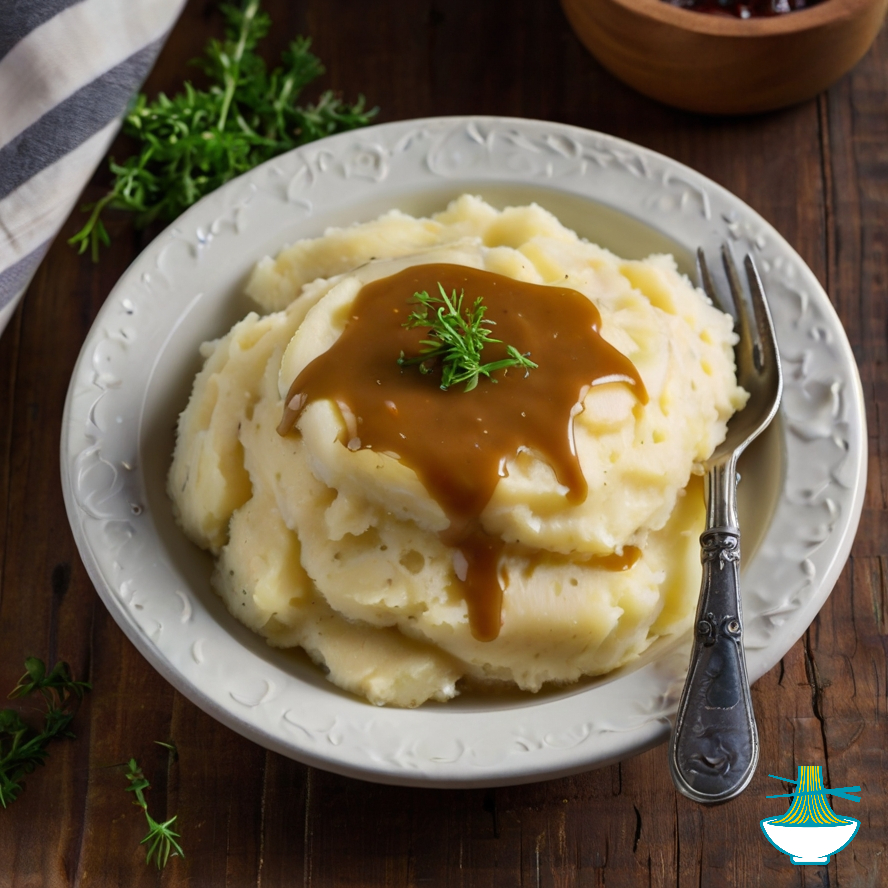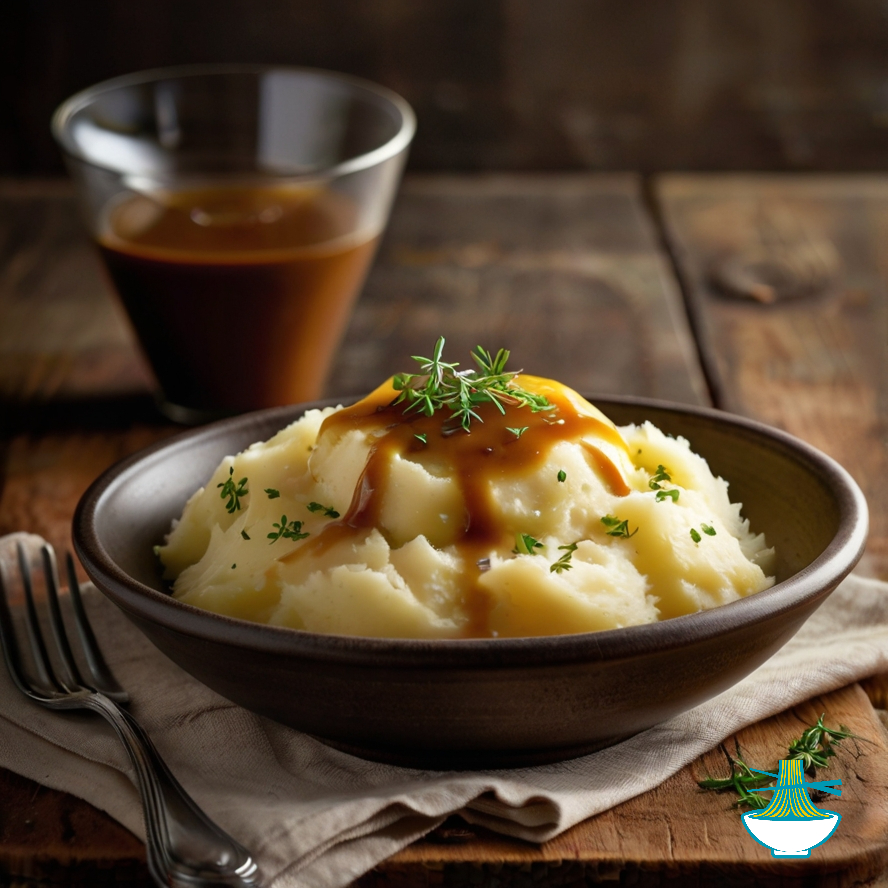Mashed potatoes are a classic comfort food enjoyed worldwide. This dish involves boiling potatoes until tender, then mashing them with butter, milk, salt, and pepper to achieve a creamy texture and rich flavor. Often served as a side dish, mashed potatoes pair well with various main courses and are a staple on holiday tables.
The history of mashed potatoes traces back to the introduction of potatoes to Europe from the Americas in the 16th century. Initially met with skepticism due to their unfamiliarity, potatoes eventually gained popularity as a nutritious and versatile food source. Mashing potatoes became a common method of preparation, offering a simple yet satisfying dish that has stood the test of time. Today, mashed potatoes remain a beloved part of many cuisines, cherished for their comforting taste and adaptability to various flavor profiles.
Ingredients:
- 2 pounds (about 900 grams) potatoes (Russet or Yukon Gold work well)
- 1/2 cup (120ml) milk
- 4 tablespoons (about 60 grams) butter
- Salt and pepper to taste
Method of Preparation:
1. Peel the potatoes and cut them into evenly sized chunks.
2. Place the potato chunks in a large pot and cover them with cold water.
3. Add a pinch of salt to the water and bring it to a boil over medium-high heat.
4. Reduce the heat to medium-low and let the potatoes simmer until they are fork-tender, about 15-20 minutes.
5. Drain the potatoes thoroughly and return them to the pot.
6. Add the milk and butter to the pot with the potatoes.
7. Mash the potatoes using a potato masher or fork until smooth and creamy. Adjust the consistency by adding more milk if needed.
8. Season the mashed potatoes with salt and pepper to taste.
9. Serve the mashed potatoes hot as a side dish, often accompanied by gravy.
Nutrition Value:
1. Potatoes:
- Calories: Approximately 416 calories for 2 pounds (900 grams) of potatoes.
- Carbohydrates: About 95 grams.
- Protein: Around 12 grams.
- Fat: Almost no fat content in potatoes.
- Sodium: Minimal sodium content naturally.
- Cholesterol: No cholesterol in potatoes.
- Vitamins and Minerals: Potatoes are rich in vitamin C, vitamin B6, potassium, magnesium, and fiber.
- Nutritional Benefit: Potatoes are a good source of complex carbohydrates, potassium for heart health, vitamin C for immune support, and fiber for digestive health.
2. Milk:
- Calories: About 50 calories per 1/2 cup (120ml) of milk.
- Carbohydrates: Approximately 6 grams.
- Protein: Around 3 grams.
- Fat: Approximately 2 grams of fat, mostly saturated.
- Sodium: Around 50 milligrams.
- Cholesterol: About 10 milligrams.
- Vitamins and Minerals: Milk is a good source of calcium, vitamin D, vitamin B12, and riboflavin.
- Nutritional Benefit: Milk provides calcium for strong bones, vitamin D for calcium absorption, and protein for muscle health.
3. Butter:
- Calories: About 408 calories for 4 tablespoons (60 grams) of butter.
- Carbohydrates: No significant carbohydrate content.
- Protein: Almost no protein.
- Fat: Around 46 grams of fat, mostly saturated.
- Sodium: About 360 milligrams.
- Cholesterol: Around 122 milligrams.
- Vitamins and Minerals: Butter contains small amounts of vitamin A and vitamin D.
- Nutritional Benefit: Butter adds richness and flavor to dishes but should be used in moderation due to its high saturated fat content.
4. Salt and Pepper:
- Calories: Negligible.
- Carbohydrates, Protein, Fat, Sodium, Cholesterol: Negligible.
- Nutritional Benefit: Salt enhances flavor, and pepper adds a mild spicy kick to the dish.
Overall, mashed potatoes made with these ingredients provide a balance of carbohydrates, protein, and fats, along with essential vitamins and minerals from potatoes, milk, and a small amount of butter. It's a comforting and satisfying side dish, especially when prepared with moderation in mind.


Comments